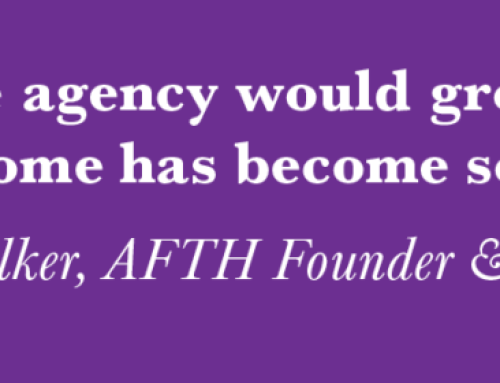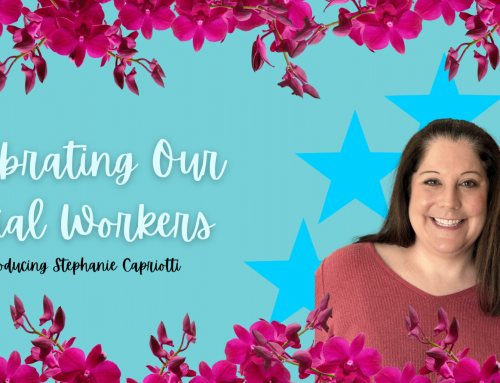July’s Heart to Heart with Adoptions from the Heart podcast centers on Birth Parents and Adoptees searches and reuniting. Host Jenna Stocks interview Helen Schooler and Marilyn Rich on this topic.
Helen Schooler is a retired Administrator of Orphans Court Services in Montgomery County. She still provides adoption search services as the court-designated authorized representative to adopted individuals and birth family members. She also helped develop and train the curriculum for the court agency-appointed authorized representatives as required by Act 101 of 2010. This is a Pennsylvania Act that that put into place open adoption parameters.
Marilyn obtained a bachelor’s degree in social work and a master’s degree in counseling. For 43 years, she worked in the Reproductive Health Care Field. For the past 23 years, she worked as AFTH’s District Supervisor in the Central Pennsylvania region. She is also AFTH’s Search Coordinator, helping adoptees connect with their birth parents and vice versa. Marilyn is an adoptee who grew up in a time where closed adoptions were the norm. Today, she uses her background and job to help families reconnect and find answers about biological families.
What is a Search?
In 1984, the Adoption Statute changed, allowing adoptees to return to their agencies or the courts that finalized their adoptions to seek information. Only adoptees could request this information. Identifying and non-identifying information could be released. For identifying information, the birth parents needed to write a letter of written consent for their identity to be revealed to the adoptee.
In 2010, Act 101 opened the search parameters. With this new amendment, birth family members could request information on adoptees so long as the adoptee is 21 years of age or older. Over the years, Marilyn conducted searches on behalf of siblings and birth parents. All Authorized Representatives that conduct the searches are required to do a 12-hour training. This is so they understand the intricacies of adoption and confidentiality.
Searches within AFTH
In Marilyn’s experience, many adult adoptees start the search for their biological parents at the age of 18 with the full support of their adoptive families. When an adoptee is ready to begin the search for their birth family, having the help of the adoptive family makes a positive impact. As beneficial as the support can be, it is not required to begin a search. Making the call to start is the hardest part.
Balancing Confidentiality and Searches
Authorized Representatives, through the Statute, are not allowed to alert birth parents as to why the representative is searching for them. Extreme caution is used. It is considered inappropriate to canvas neighbors to locate a birth parent, as a Private Investigator might do.
Adoptees in Pennsylvania can request the release of their original birth certificates. They can obtain a non-certified copy of the original birth records, which would include the names of the birth mother and father if his identity was known, the date of the adoptee’s birth, and the adoptee’s birth name. This information allows adoptees to search on their own.
Agency Searches vs. Private Searches
Helen steps in when agencies were not involved in the adoption process but were instead facilitated by a lawyer, physician, or family friend. Because of this, there is very little non-identifying information to give. The information she can provide is gathered from the court record or testimony. Rarely is there any medical information to share. Any people coming to the court falsely assume there is a lot of information to be obtained, which isn’t always the case.
Agencies are required to save records for 99 years. The goal is to have as much information as possible, especially as an open adoption agency. At the time of placement, medical information is provided along with anything else the birth parent felt comfortable sharing. Contact through the years provides pictures and letters. Sometimes contact is lost the agency will get a call to reconnect the triad. It is helpful when adoptees have some information to help jumpstart the agency’s searches. However, they are still usually able to provide more information than what might be found in a private search.
The Call to the Birth Parents
Helen does not cold call any birth parents. Instead, she instructs the adoptee to write a letter of introduction that explains why they are searching and any other information they feel comfortable sharing. Locating a birth parent can happen within 20 minutes or might never happen. Helen says the younger the birth parent, the more likely they will be found as they’re more on the grid.
Helen will send a concise letter saying she is looking for this person who previously lived on this street to maintain confidentiality. This protects the birth parent if someone else gets a hold of this letter. Once the birth parent responds, Helen will ask if they have any idea why she is searching for them. She does her best to act in the best interest of the adoptee and the located parent. She encouraged the located parent to take their time and think about their next steps.
Birth Parents Searching for Children
In many cases, birth parents had contact with their child but lost contact, so they reach out to AFTH as it is an open adoption agency. This can happen if a family moves or contact ceases for an extended amount of time. According to the Statute, for a birth parent to search for their child, the child must be 21 years of age or older. If the adoptee is underaged, then the search cannot move forward through an authorized court representative.
Search Story
Helen talks about searching for an adoptee in his mid-twenties on behalf of his birth father. When she located him, she asked her usual questions about whether he knew why she contacted him. He wondered if someone was getting in touch with him to inform him that he, himself, was a birth father. Helen told him his birth father was searching, which was a shock. The adoptee did not know he was adopted. Helen recalls talking to him for an hour. Despite the shock, the conversation was overall very pleasant and rewarding.
Birth Parents Changing Their Mind on Contact
Marilyn says that all AFTH clients fill out a confidentiality statement. She finds it very helpful when they check back in to confirm their wishes are still the same or to notify if they change. When she reaches out to birth parents, she continuously checks first to make sure they wish to be contacted, as stated in their statement, before proceeding. In most instances, the parent is welcoming of the contact and information. Occasionally, the parent moves on with their life and no longer wishes to be contacted. When the latter happens, Marilyn gathers whatever information she can, like medical information. She points out it is essential that both searching birth parents and adoptees feel their confidentiality is protected and that the agency is looking out for their well-being. Marilyn said:
If you lose trust (with a client), you’ve lost everything. So, we always want to ensure they know they have a safe place to fall when they come to Adoptions From The Heart. We will look out for them at all costs. They are to be respected no matter where they fall on wanting contact or not wanting contact.
Searches Done Incorrectly Can Be Invasive
Marilyn talks about it being particularly difficult for adoptees searching because they want to know the information and feel entitled. At the same time, it is protected information. She says the agency does its best to see that both parties are comfortable with the process and outcome. On the opposite end of the spectrum, Marilyn heard a horrible story from someone she worked with who didn’t place with AFTH. The woman placed her child back when she was a teenager. Later in life, the daughter moved away and used a private searcher. The searcher unearths so much information in hopes of making a connection. Unfortunately, in doing so, the birth mother felt violated by the invasive and insensitive process. It caused many problems that could have been avoided had the connection been brought about the right way.
Support Outside Pennsylvania
There were states, like New Jersey, that opened up their records before Pennsylvania did. On the flip side, Helen believes some states still haven’t opened up their records. There are people called Search Angels that can assist adoptees in finding their birth parents. She is unclear if they are professionally trained. Some agencies took advantage of people searching by promising them they could find the birth parents despite the records still being closed in certain states. The promise was ill-founded, considering the lack of information to go on.
Helen warns those searching and looking for a relationship to give it time. Connections are built on shared experiences. It takes time to create them. Rushing into a relationship and expecting it to be great right away isn’t realistic. Getting to know one another is the most significant way to build a connection.
How to Begin Searches
A birth parent or adoptee needs to know where the adoption finalization took place because that is where the records are. If it is unknown to the birth parent or adoptee, they can contact Vital Records. The information can be released to them. Then they can get the Orphans Court in the correct county provided by Vital Records.
Advice on Searches
Making that first call isn’t as horrible as you’ve built it up in your head. Beginning the process is difficult but most likely not as painful as you think. However, searching isn’t for everyone. Marilyn says:
There is no right or wrong. It’s an individual choice about what you feel is best for you, your family, and your future. We take it one step at a time, and that’s what we are here for, to try to assist you in moving forward so you can have…the biological connections you wanted.
Searching is all about timing, according to Helen. Don’t get on yourself for not acting at a certain point. It means you weren’t ready to search. When you do feel prepared to begin, make sure you have a support system to be there with you during the process.
Stay tuned for future podcasts to learn about how DNA can connect birth families and adoptees.
Listen to the podcast here.





